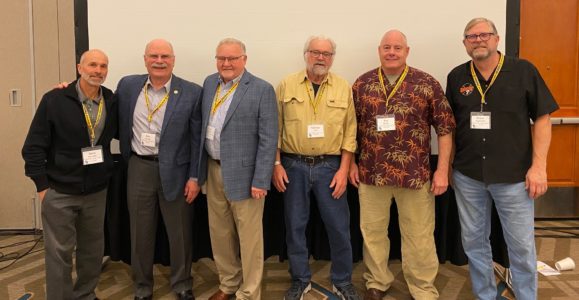
WSCFF Retirees Association Advisory Board Member Steve Hostetter reflects on planning for retirement.
As a recent retiree, I often have conversations with fire service friends about retirement. The discussion is usually about the financial considerations and benefit choices like survivor options and purchasing service credits. Recently I’ve been making it a point to ask my friends what they plan on doing with their time when they retire. Sometimes the response is quite definitive, and sometimes it’s not; and in my opinion, the question deserves consideration.
Retirement is a huge life change, and like getting married or having children, it is hard to know what it is going to be like until you do it. Whether you are approaching retirement or already retired, I encourage you to think about and research what you want life after the fire service to look like. Include the people you love, as they will be on the journey with you. Take notes, read books, and talk to people you respect who seem to be on the right path. Studies show that the more thought and planning one puts into retirement, the less chance one stands to run into problems.
Recently one of our active retiree members sent us an email with information and insight into the challenges fire fighters face in retirement from psychological, physiological, and relational dynamics like depression and other mental health issues, as well as alcoholism and drug dependency, sometimes even ending in suicide. He sent several studies, and I think many of us have had some exposure to this type of information.
Jada Hudson, a Clinical Consultant for Retire Peer Support, states in one of her articles:
“After overcoming the emotions of retirement and painful memories experienced in the fire service many retirees find excitement and purpose by pursuing second careers, meaningful leisure planning, or volunteerism. Retired fire fighters now have the beautiful opportunity to create a new vision for the future. By identifying values – strengthening long-term relationships, establishing new relationships, building fitness, mastering finances, giving back to others – retirees can take steps to frame their retirements around the pursuit of those values.”
While the fire fighter career affects some more than others, we all need a sense of self-worth and to feel productive. As firefighting is high on the “fulfillment” scale, we need to figure out how we are going to manage these needs and emotions, and what we will do with our time to replace our careers. This requires some thoughtfulness, and, from my experience, it is an ongoing process. I think a lot about what is important in my life and how I should spend my time. I try to focus on a healthy balance of work, play, fitness, and spirituality. It’s an ever-evolving process, and one I enjoy and feel fortunate to have the opportunity to do.
For a good read on retirement, check out “Envisioning a Happy, Hopeful Retirement for Firefighters” by Jada Hudson, M.S., LCPC, CADC A.

